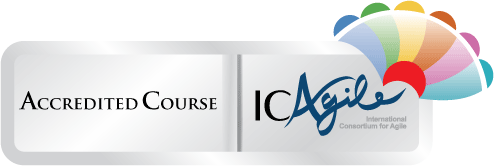 After reading a blog post by Dennis Stevens, I suddenly realized one of things about the family of PMI certifications that has been bothering me. The family of credentials does not lend itself to the Dreyfus Model. Dennis offered really compelling arguments about what does certification imply, about people who can’t or won’t earn certifications, and what he calls tilting at windmills.
The Dreyfus Skill Acquisition Model, which Dennis references, identifies five stages of competence:
After reading a blog post by Dennis Stevens, I suddenly realized one of things about the family of PMI certifications that has been bothering me. The family of credentials does not lend itself to the Dreyfus Model. Dennis offered really compelling arguments about what does certification imply, about people who can’t or won’t earn certifications, and what he calls tilting at windmills.
The Dreyfus Skill Acquisition Model, which Dennis references, identifies five stages of competence:
Novice: Rigid adherence to taught rules or plans. No exercise of discretionary judgment.
Advanced beginner: Limited situational perception. All aspects of work treated separately with equal importance.
Competent: Coping with crowdedness (multiple activities, accumulation of information). Some perception of actions in relation to goals. Deliberate planning. Formulates routines.
Proficient: Holistic view of situation. Prioritizes importance of aspects. Perceives deviations from the normal pattern. Employs maxims for guidance, with meanings that adapt to the situation at hand.
Expert: Transcends reliance on rules, guidelines, and maxims. Intuitive grasp of situations based on deep, tacit understanding. Has vision of what is possible. Uses analytical approaches in new situations or in case of problems.
PMI currently has 5 certifications. You don't need to be an active PMI member (currently at 318,421) to hold one of these certification. To get one of these credentials, you need to meet some educational and experience requirements and then pass a written exam. Only the Program Management Professional requires a panel review.
| Certification |
Total Active |
| Project Management Professional (PMP) |
389,726 |
| Certified Associate Project Manager (CAPM) |
11,785 |
| PMI Risk Management Professional (PMI-RPM) |
393 |
| PMI Scheduling Professional (PMI-SP) |
327 |
| Program Management Professional (PgMP) |
436 |
What is missing here is some continuity between the credentials and something that indicates the level of expertise. There is a difference between a PMP who met the minimum experience requirements and one who has been practicing in the profession for 20 years. Would calling someone a Lawfulgood PMP level 5 with a 20 wisdom and 30 charisma help? I'm not proposing we pull credential titles form Dungeon and Dragons, but rather something that will give the laymen an idea of experience.
Do I have an example? I absolutely do! Check out the International Consortium of Agile (ICAgile). They are proposing a 3-phased, skill-based, certification. If PMI borrowed from this model, the CAPM would be part of phase 1 (Associate), RPM, SP, and PMP would be part of phase 2 (Professional), and PgMP would be phase 3 (Expert). PMI wouldn't necessarily have to mimic this framework exactly, but do you see how it puts it all into context? If there would be a mighty uproar by the PMP community, suddenly being demoted to associate level, you could identify them as a PMP-1 or PMP-2, depending on which knowledge area(s) they have been certified in.
Any thoughts or comments?
 Though I've been doing Enterprise Agile Coaching with LeadingAgile for over a year now, I haven't been doing a lot of training (or blogging). I've been sticking to agile transformation work and the occasional private class.
Though I've been doing Enterprise Agile Coaching with LeadingAgile for over a year now, I haven't been doing a lot of training (or blogging). I've been sticking to agile transformation work and the occasional private class.

